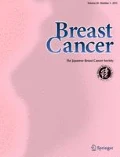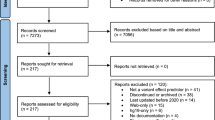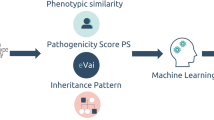Abstract
Background
BRCA1/2 gene mutation testing, based on next-generation sequencing (NGS), has been gradually applied in the clinic to serve as preventive early screening for predisposed individuals or to provide treatment options for patients with hereditary breast or ovarian cancers. Here, we evaluated the accuracy of NGS-based mutation detection in BRCA1/2 and the consistency in variant interpretation among clinical laboratories to find the possible reasons underlying inaccurate results and discrepant variant interpretation.
Methods
Laboratories were asked to use their routine procedures to detect six mimetic DNA samples with different BRCA1/2 germline variants. The results of variant detection were required to be submitted via a web-based evaluation system and were automatically scored, according to predefined criteria. The variant interpretation report, including the detailed clinical evidence, was summarized and analyzed for reasons underlying inconsistent results.
Results
Overall, only 55.2% (16/29) of laboratories, whose detection score was higher than 90 points, was found to be an acceptable detection capability level. 82.9% (29/35) of the errors were genotype errors. The variant classification results were generally consistent, and 77.8% (7/9) of the variants were given the consistent classification answer. Only two single nucleotide variants (SNVs) had a discrepant classification opinion across laboratories.
Conclusions
The BRCA1/2 variant detection performance should be further improved, especially in reporting the correct genome coordinates. Inconsistent variant classification may be a result of the different clinical pieces of evidence collected by the laboratories. However, discordant clinical evidence also appeared within the same classification results. Therefore, our study provided clear clinical evidence assessment strategies for BRCA1/2 variants, which was aimed at obtaining a consistent variant classification strategy for providing accurate clinical reports to the clinicians.





Similar content being viewed by others
References
Apostolou P, Fostira F. Hereditary breast cancer: the era of new susceptibility genes. Biomed Res Int. 2013;2013:747318.
Kuchenbaecker KB, Hopper JL, Barnes DR, Phillips KA, Mooij TM, Roos-Blom MJ, et al. Risks of breast, ovarian, and contralateral breast cancer for BRCA1 and BRCA2 mutation carriers. JAMA. 2017;317:2402–16.
Kotsopoulos J, Gronwald J, Karlan B, Rosen B, Huzarski T, Moller P, et al. Age-specific ovarian cancer risks among women with a BRCA1 or BRCA2 mutation. Gynecol Oncol. 2018;150:85–91.
Tai YC, Domchek S, Parmigiani G, Chen S. Breast cancer risk among male BRCA1 and BRCA2 mutation carriers. J Natl Cancer Inst. 2007;99:1811–4.
Evans DG, Susnerwala I, Dawson J, Woodward E, Maher ER, Lalloo F. Risk of breast cancer in male BRCA2 carriers. J Med Genet. 2010;47:710–1.
Couch FJ, Farid LM, DeShano ML, Tavtigian SV, Calzone K, Campeau L, et al. BRCA2 germline mutations in male breast cancer cases and breast cancer families. Nat Genet. 1996;13:123–5.
Tutt A, Tovey H, Cheang MCU, Kernaghan S, Kilburn L, Gazinska P, et al. Carboplatin in BRCA1/2-mutated and triple-negative breast cancer BRCAness subgroups: the TNT Trial. Nat Med. 2018;24:628–37.
Alsop K, Fereday S, Meldrum C, deFazio A, Emmanuel C, George J, et al. BRCA mutation frequency and patterns of treatment response in BRCA mutation-positive women with ovarian cancer: a report from the Australian Ovarian Cancer Study Group. J Clin Oncol. 2012;30:2654–63.
Gorodnova TV, Sokolenko AP, Ivantsov AO, Iyevleva AG, Suspitsin EN, Aleksakhina SN, et al. High response rates to neoadjuvant platinum-based therapy in ovarian cancer patients carrying germ-line BRCA mutation. Cancer Lett. 2015;369:363–7.
Olaparib for Metastatic Breast Cancer in Patients with a Germline BRCA Mutation. N Engl J Med. 2017; 377: 1700.
Rucaparib Approved for Ovarian Cancer. Cancer Discov. 2017; 7: 120-1.
Ison G, Howie LJ, Amiri-Kordestani L, Zhang L, Tang S, Sridhara R, et al. FDA approval summary: niraparib for the maintenance treatment of patients with recurrent ovarian cancer in response to platinum-based chemotherapy. Clin Cancer Res. 2018;24:4066–71.
Litton JK, Rugo HS, Ettl J, Hurvitz SA, Goncalves A, Lee KH, et al. Talazoparib in patients with advanced breast cancer and a germline BRCA mutation. N Engl J Med. 2018;379:753–63.
He KY, Ge D, He MM. Big Data Analytics for Genomic Medicine. Int J Mol Sci. 2017; 18.
Hwang KB, Lee IH, Li H, Won DG, Hernandez-Ferrer C, Negron JA, et al. Comparative analysis of whole-genome sequencing pipelines to minimize false negative findings. Sci Rep. 2019;9:3219.
Plon SE, Eccles DM, Easton D, Foulkes WD, Genuardi M, Greenblatt MS, et al. Sequence variant classification and reporting: recommendations for improving the interpretation of cancer susceptibility genetic test results. Hum Mutat. 2008;29:1282–91.
Richards S, Aziz N, Bale S, Bick D, Das S, Gastier-Foster J, et al. Standards and guidelines for the interpretation of sequence variants: a joint consensus recommendation of the American College of Medical Genetics and Genomics and the Association for Molecular Pathology. Genet Med. 2015;17:405–24.
ENIGMA Consortium. ENIGMA BRCA1/2 gene variant classification criteria [EB-OL]. (2015-03-26) [2016-08-10] https://enigmaconsortium.org/wp-content/uploads/2016/06/ENIGMA_Rules_2015-03-36.pdf.
Cline MS, Liao RG, Parsons MT, Paten B, Alquaddoomi F, Antoniou A, et al. BRCA challenge: BRCA exchange as a global resource for variants in BRCA1 and BRCA2. PLoS Genet. 2018;14:e1007752.
Szabo C, Masiello A, Ryan JF, Brody LC. The breast cancer information core: database design, structure, and scope. Hum Mutat. 2000;16:123–31.
Hoffman-Andrews L. The known unknown: the challenges of genetic variants of uncertain significance in clinical practice. J Law Biosci. 2017;4:648–57.
Rehm HL, Bale SJ, Bayrak-Toydemir P, Berg JS, Brown KK, Deignan JL, et al. ACMG clinical laboratory standards for next-generation sequencing. Genet Med. 2013;15:733–47.
Zhu G, Ge H, Li X, Ruan L. 1909PClinical validation of an NGS-based assay for the detection of BRCA1 and BRCA2 variants in Chinese patients with breast cancer or ovarian cancer. Ann Oncol. 2018; 29.
Fernandes GC, Michelli RA, Galvao HC, Paula AE, Pereira R, Andrade CE, et al. Prevalence of BRCA1/BRCA2 mutations in a Brazilian population sample at-risk for hereditary breast cancer and characterization of its genetic ancestry. Oncotarget. 2016;7:80465–81.
Qu S, Chen Q, Yi Y, Shao K, Zhang W, Wang Y, et al. A reference system for BRCA mutation detection based on next-generation sequencing in the Chinese population. J Mol Diagn. 2019;21:677–86.
Kwong A, Shin VY, Ho JC, Kang E, Nakamura S, Teo SH, et al. Comprehensive spectrum of BRCA1 and BRCA2 deleterious mutations in breast cancer in Asian countries. J Med Genet. 2016;53:15–23.
den Dunnen JT, Dalgleish R, Maglott DR, Hart RK, Greenblatt MS, McGowan-Jordan J, et al. HGVS recommendations for the description of sequence variants: 2016 update. Hum Mutat. 2016;37:564–9.
Pennington KP, Walsh T, Harrell MI, Lee MK, Pennil CC, Rendi MH, et al. Germline and somatic mutations in homologous recombination genes predict platinum response and survival in ovarian, fallopian tube, and peritoneal carcinomas. Clin Cancer Res. 2014;20:764–75.
Samorodnitsky E, Jewell BM, Hagopian R, Miya J, Wing MR, Lyon E, Damodaran S, Bhatt D, Reeser JW, Datta J, Roychowdhury S. Evaluation of hybridization capture versus amplicon-based methods for whole-exome sequencing. Hum Mutat. 2015;36:903–14.
Ellison G, Wallace A, Kohlmann A, Patton S. A comparative study of germline BRCA1 and BRCA2 mutation screening methods in use in 20 European clinical diagnostic laboratories. Br J Cancer. 2017;117:710–6.
1000 Genomes Project Consortium, Auton A, Brooks LD, Durbin RM, Garrison EP, Kang HM, Korbel JO, Marchini JL, McCarthy S, McVean GA, Abecasis GR. A global reference for human genetic variation. Nature. 2015;526:68–74.
Karczewski KJ, Weisburd B, Thomas B, Solomonson M, Ruderfer DM, Kavanagh D, Hamamsy T, Lek M, Samocha KE, Cummings BB, Birnbaum D, The Exome Aggregation Consortium, Daly MJ, MacArthur DG. The ExAC browser: displaying reference data information from over 60,000 exomes. Nucleic Acids Res. 2017;45:D840–5.
Vail PJ, Morris B, van Kan A, Burdett BC, Moyes K, Theisen A, Kerr ID, Wenstrup RJ, Eggington JM. Comparison of locus-specific databases for BRCA1 and BRCA2 variants reveals disparity in variant classification within and among databases. J Community Genet. 2015;6:351–9.
Lincoln SE, Yang S, Cline MS, Kobayashi Y, Zhang C, Topper S, Haussler D, Paten B, Nussbaum RL. Consistency of BRCA1 and BRCA2 variant classifications among clinical diagnostic laboratories. JCO Precis Oncol. 2017; 1: PO.16.00020.
Funding
This work was supported by the Fund for Beijing Dongcheng District Outstanding Talents Team Program 2019DCT-M-01(Rui Zhang), National Key R&D Program of China 2018YFE0201604 (Jinming Li), National Natural Science Foundation of China Grant 81974319 (Jinming Li), Beijing Hospital Nova Project BJ-2018-136 (Rui Zhang).
Author information
Authors and Affiliations
Corresponding author
Ethics declarations
Conflict of interest
The authors declare that they have no conflict of interest.
Ethical approval
This article does not contain any studies with human participants or animals performed by any of the authors.
Additional information
Publisher's Note
Springer Nature remains neutral with regard to jurisdictional claims in published maps and institutional affiliations.
Supplementary Information
Below is the link to the electronic supplementary material.
About this article
Cite this article
Zhang, R., Gao, P., Han, Y. et al. Reliable assessment of BRCA1 and BRCA2 germline variants by next-generation sequencing: a multicenter study. Breast Cancer 28, 672–683 (2021). https://doi.org/10.1007/s12282-020-01204-x
Received:
Accepted:
Published:
Issue Date:
DOI: https://doi.org/10.1007/s12282-020-01204-x




